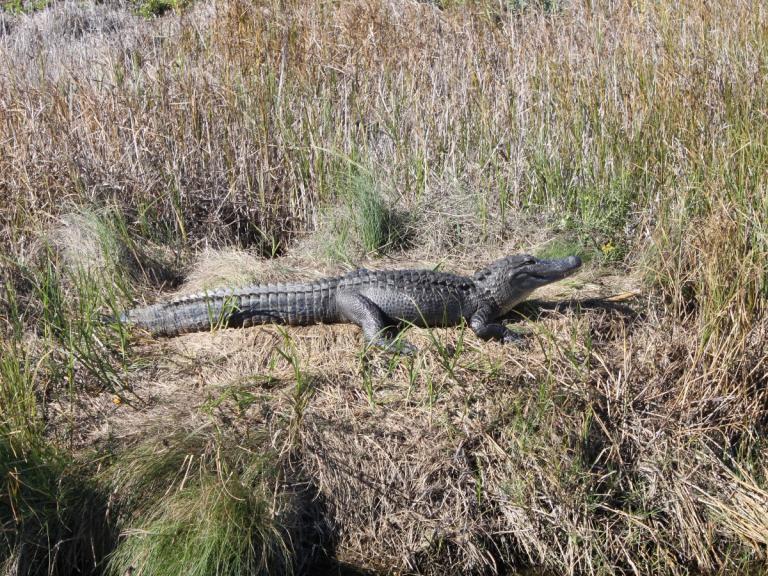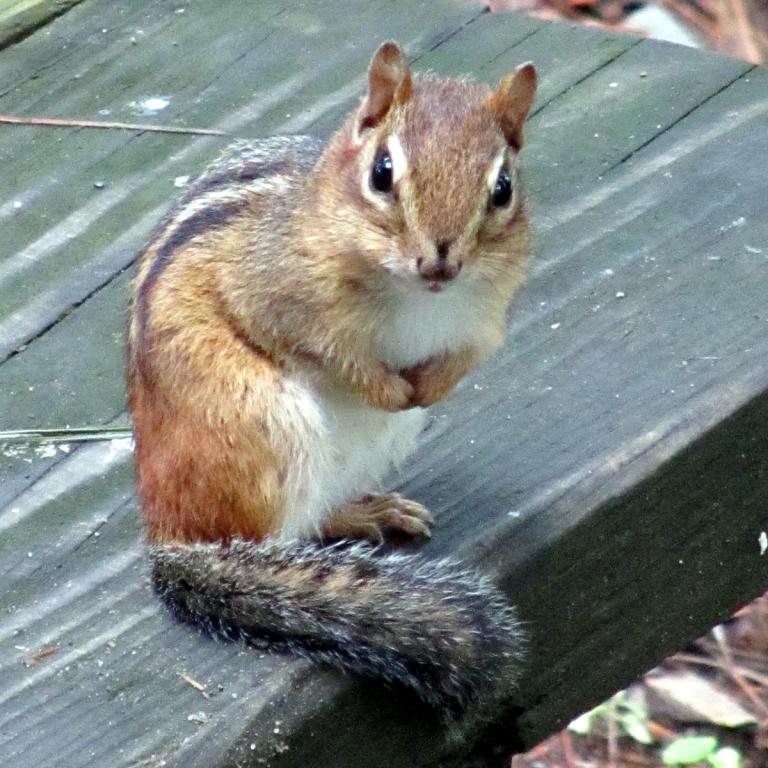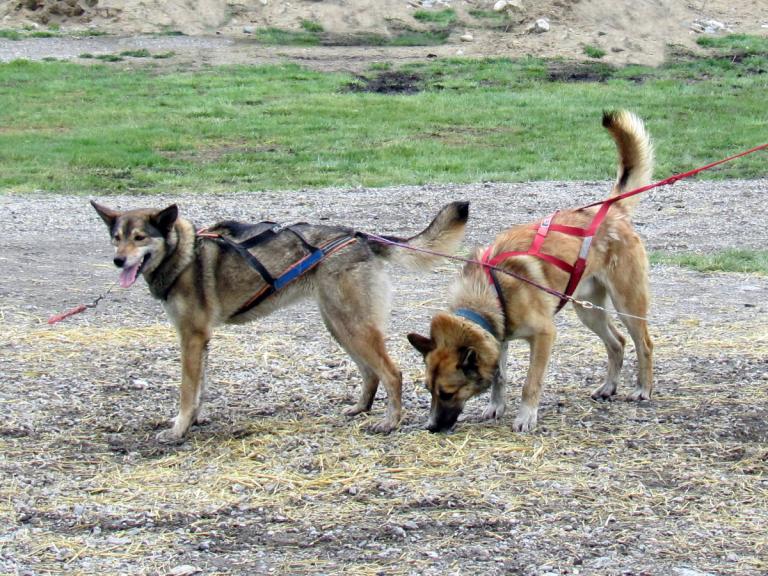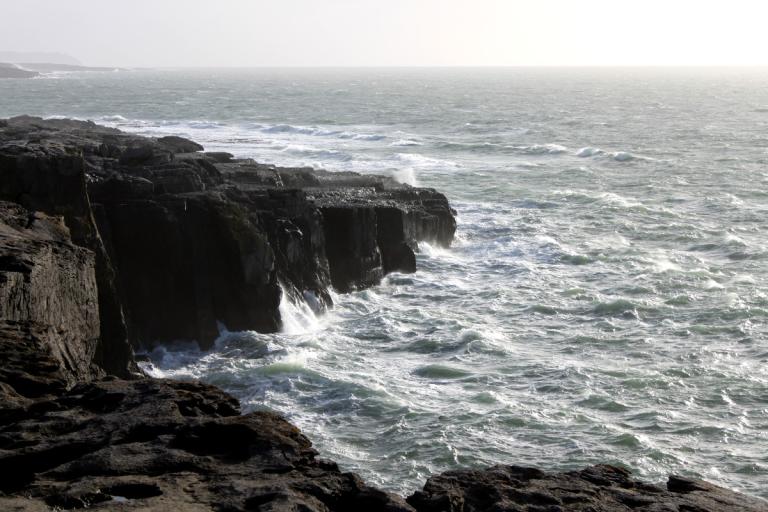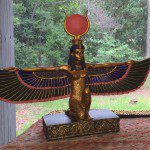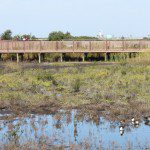George Monbiot has a TED talk titled “For more wonder, rewild the world.” He tells how the reintroduction of wolves to Yellowstone National Park has had a dramatic and positive effect on the entire ecosystem. Wolves reduced the number of deer, which allowed overgrazed lands to recover, which allowed trees to grow thicker and taller, which supported increased populations of birds, which has supported a general recovery of biological diversity in the park. The talk is good and worth the 15 minutes it takes to watch it.
I’m aware of the criticisms of TED talks: they emphasize talk instead of action, they oversimplify complicated issues, they’re “church for secular liberals.” And with this talk, some people have challenged the idea that the reintroduction of wolves really has done so much good (see “oversimplify complicated issues”).
But it is no great stretch to see that an environment which evolved over millions of years and had adapted to local conditions over hundreds would be more robust when all its component species are present.
It’s also helpful to remember who removed the wolves in the first place.
Monbiot suggests rewilding more than just national parks. He describes the evolutionary advantages of megafauna in ecosystems and asks “why shouldn’t all of us have a Serengeti on our doorsteps?”
Some places are being or will be rewilded on their own as humans abandon them for political, economic, and environmental reasons. But reintroducing megafauna would require the kind of massive collective action our fractured political systems are no longer able to produce. It’s a nice thought, but see “oversimplify complicated issues.”
What about action on a personal level? How can we rewild our own lives?
“I didn’t come from any monkey!”
If you discuss evolution in a public forum, you’ll hear this line sooner rather than later. A third of Americans reject the reality of evolution. The standard response is “of course you didn’t – humans didn’t evolve from monkeys, we both shared a common ancestor 25 million years ago.” That’s true, but it doesn’t address the real reason behind the evolution-denier’s emotional declaration.
Some people just can’t comprehend deep time. Changes that are impossible in a brief human lifetime or even in still-brief recorded history are no problem on a cosmic time scale. But if you can’t comprehend the age of the Earth – or if you actively deny it because it conflicts with a literal reading of your sacred text – then evolution isn’t going to make sense.
Others understand that evolution undermines the grand narrative that supports fundamentalist Christianity. If evolution is true then there is no historical Adam and Eve. If there is no historical Adam and Eve then there is no fall of man, no original sin, and no need for atonement. The death of Jesus becomes the state-sponsored murder of an inconvenient radical and not a saving sacrifice. Christianity is no longer the only way, it’s simply one way among many. Faced with the loss of their exclusivity – and fearing they might have gotten something wrong that would send them to the hell they’re sure has to exist – they find it easier to reject the overwhelming evidence for evolution than to reconsider their religious narrative.
For most folks in that 33%, though, the reason is far simpler – they fear the loss of a special and privileged position. It isn’t enough that opposable thumbs, big brains, and capacity for language have put them at the pinnacle of the Natural world, they want to be the sole creatures who are Imago Dei – made in the image of God.
Traditionally, Imago Dei is given as the reason why humans have intrinsic value. But it’s also an excuse to devalue other species and ecosystems. If we’re made in the image of God and they’re not, then we have no obligation to consider their wellbeing – their value is based only on their utility to humans. This has been disastrous for the species we’ve driven to extinction, and as Nature-centered Pagans understand, it’s been bad for humans too.
Evolution removes humans from our special privileged position. Many people don’t like that, to the extent they’ll deny the reality of evolution rather than contemplate the implications of the interrelatedness of all Life.
The dog hears the howl of the wolf and remembers what he has never known.
The wild is beautiful and powerful, but it is also unpredictable, uncontrollable, and utterly unconcerned with the fate of any single individual.
The story of civilization is the story of the fight against the wild. Agriculture made food supplies more certain and allowed surpluses to be stored against future famine. Houses gave shelter from the rain and wind. Burning – wood, then coal, then natural gas – gave relief from the cold, and when converted to electricity, relief from the heat. Medicine gave relief from disease… and what is disease but microscopic wild things whose presence is harmful to humans and our preferred species?
On the whole this has been a good thing for humans. Particularly for those of us who are fortunate enough to live in certain parts of the world, our lives are longer, easier, and more secure than ever before. If things seem worse today, it is because we see how good things could be if the benefits of modern society were shared with all and not hoarded by a few.
If things seem worse, it is because every now and then, hurricanes or tornadoes or ebola outbreaks remind us who’s really in control, and it’s not us. Shattered illusions – or shattered pretensions – bring great fear.
Like every other species, we follow our instincts for self-preservation and self-advancement until we run into a hard limit. Unlike other species, we have the intellectual capacity to see these limits before we run full speed into a brick wall. But as the “debate” on climate change shows, many of us prefer to cling to our pleasant illusions, even if those illusions aren’t making our lives better.
The dog hears the howl of the wolf and remembers what he has never known.
Ten thousand years of civilization have left us with the idea that the wild is something to be feared and controlled, something to drive out of ourselves and pretend we never had it in the first place. That’s certainly been effective – we’ve gone from stone axes to smartphones in the blink of an evolutionary eye. But the pendulum has swung too far and you don’t need a Ph.D in divination to see we’re headed for a serious and unpleasant reversal.
There is an unfortunate and unhelpful idea in some parts of the Pagan community that the ideal state is something called “balance.” Find just the right mix of work and play, the right blend of this and that, and things will go on forever and ever and never change. No more change, no more stress.
If something never changes, it’s because it’s dead, or soon will be.
Moderation – nothing in excess – is a helpful strategy. Balance is an impossible goal and we should be thankful it’s not possible. Boredom is a fate worse than death.
It’s also not possible to cling forever to a privileged position that’s built on lies and illusions.
The wild brings randomness into our lives. It creates situations that are harmful to some and helpful to others. There’s a whole branch of magic that deals with using randomness to our advantage. You may want to learn it before you have great need of it.
The question for us isn’t whether we should try to create a Serengeti on our doorsteps. The question is how we will respond when the wild shows up and knocks on our door… and when it kicks the door off its hinges.
Whether we run into limits or whether Nature asserts Her superior power, whether we seek it out or whether we hide from it, sooner or later the wild will insert itself into our lives. We can cower in its presence, we can scream angrily and impotently into its face, or we can adjust ourselves and our expectations to the new reality and put our opposable thumbs, big brains, and capacity for language to work taking advantage of the opportunities it brings.


